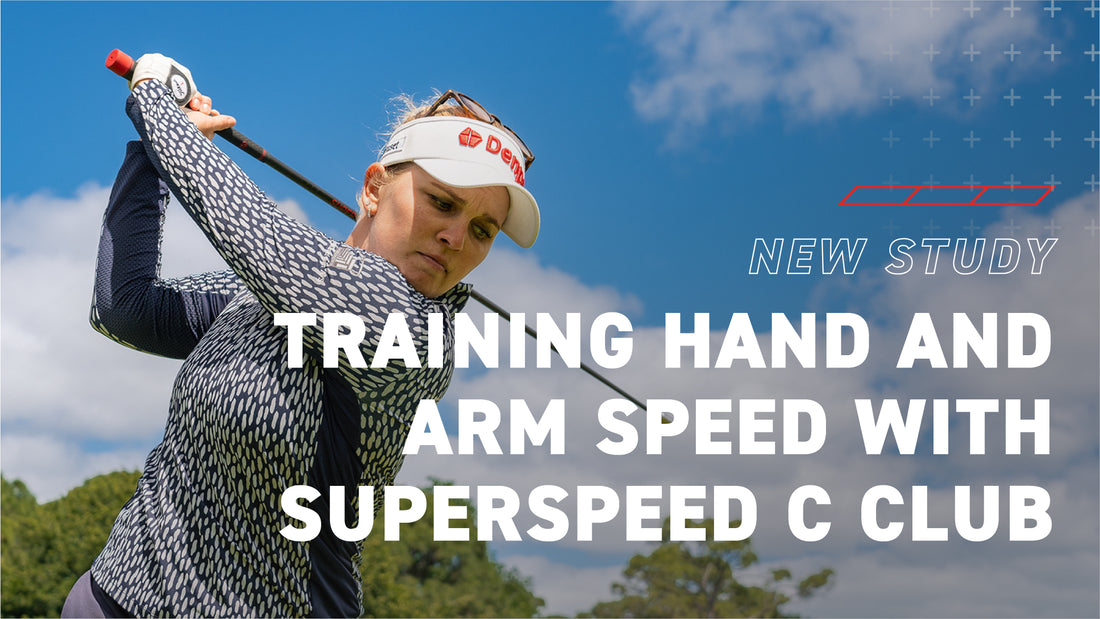Introduction
Speed training has been shown to be an effective way to increase club speed, ball speed and carry distance in golfers of all skill levels. Traditionally this is carried out with weighted clubs that have similar dynamics of a player's driver. These types of training help drastically improve ground reaction force production during the golf swing, but potentially don’t fully target the way the golfer interacts with the club directly. Counterweighting has been a process of moving mass towards the hands, in order to affect swing speed through hand and club interactions. Past products have been used by players in their own clubs during training, but no research has been carried out on the effect of using a heavily counterweighted training aid in order to increase swing speed. The purpose of this study was to take a group of golfers through a 6 week training cycle using the SuperSpeed C Club, in order to see changes in club speed, ball speed and carry distance. The focus was primarily to understand if this club could elicit speed gains as a result of improvements in arm and hand speed and hand and grip dynamics.
Methods
11 recreational golfers participated in the study. The average age of the golfers was just over 40 years old, and the average handicap was around 15. Golfers in this study had never utilized counterweighted speed training before. The initial visit with the golfers consisted of a dynamic warm up, followed by hitting balls with increasing intensity with their own driver. After a period of about 10 balls, the players were instructed to hit 3 drives with max intensity, while data was collected using Trackman. Upon completion of the initial assessment, the golfers were shown the level 1 protocol from SuperSpeed golf for the C club. This consisted of 39 swings, 21 from the dominant side, 18 from the non dominant side, in 3 different drill positions. Regular swing, narrow swing and step swings. The player went through the entire cycle of training to ensure they were performing the exercises correctly. They were then sent the dynamic warm up and exercises and were instructed to perform these workouts 3x a week for the next 6 weeks. At the end of the training cycle, players came back in and performed the identical assessment including the dynamic warm up and ramping up of hitting balls until 3 were hit at maximum intensity. Comparisons were made for club speed, ball speed and carry distance.
Results
Club speed, ball speed and carry distance all improved as a result of the training program. The increase in club speed was 4 mph, or 4% (p=0.005), ball speed almost 10 mph or 7% (p=0.01) and carry distance of 22 yards or almost 10% (p<0.001). Figure 1 shows the data values for pre and post of all metrics and Figure 2 shows both the average raw and percent gain for the groups.
Conclusion
Training with a counterweighted club does in fact lead to increased club speed, ball speed and carry distance. These gains were seen after only 6 weeks of training at 45 minutes a week with only the SuperSpeed c club. Future studies should look at the changes in both kinetic and kinematics sequencing as a result of this training. Also investigating this training in conjunction with traditional overspeed training. The results from this study are strong to suggest that the SuperSpeed C club is an effective way for golfers to train to increase distance.

